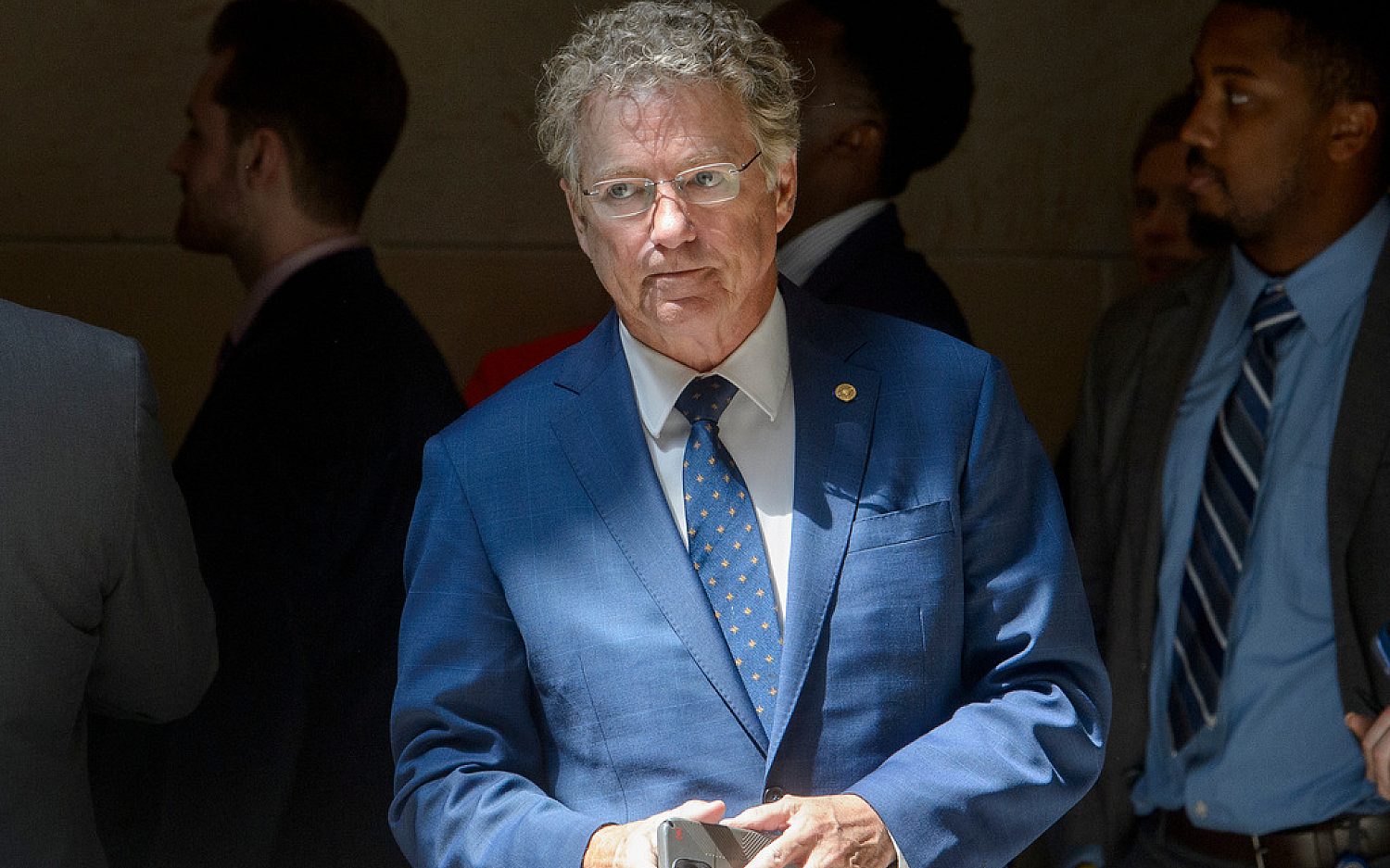Turning Iran into a boa constrictor
Lawmakers debate the effect of sanctions relief on Iran's ability to fund Middle East terror networks
WASHINGTON—As Congress begins a 60-day review of the recent nuclear deal with Iran, most debate has focused on whether the pact will actually deter Iran’s nuclear program. On Wednesday a House panel looked at a different question: Even if the agreement goes perfectly, will the included sanctions relief proliferate Iran’s terrorist support?
The general consensus is yes.
Iran will have “dramatically greater financial tools to accomplish its goals,” said Ilan Berman, vice president at the American Foreign Policy Council. Berman told lawmakers Iran already has a nine-digit budget line item for supporting terrorist activities, including Hezbollah, Hamas, Bashar al-Assad’s regime in Syria, and Houthi rebels in Yemen.
The hearing, held by the special Task Force to Investigate Terrorism Financing, came as lawmakers weigh a nuclear deal President Barack Obama desperately wants them to approve. Republicans appear universally opposed to it, while many Democrats remain undecided.
Iran has been on the U.S. State Department’s list of state sponsors of terrorism for 31 years, so there’s little question the Islamist country will use some of its new cash for nefarious purposes. Lawmakers are left to wrestle with two key questions: How much will Iran use on terrorist activities, and is that worth the exchange of handcuffing the regime’s nuclear program?
“It’s an awfully large sum of money,” Berman said. “Even if it’s spent overwhelmingly on domestic affairs, the fear is that it will free up other funds for terrorism.”
Mark Dubowitz, a sanctions and illicit finance expert at the Foundation for Defense of Democracies, said loosening sanctions will do much more than free some $100 billion in frozen assets—a number one-fourth the size of Iran’s total economy. It also will allow Iran to conduct international commerce that will make the deal worth “hundreds and hundreds of billions” of dollars.
Richard Nephew, a former State Department official who was directly involved in the nuclear talks in 2013 and 2014, acknowledged Iran likely will use some of the money on terrorism, but he argued the amount would be negligible. He said a deal would not have happened without sanctions relief, and “the Iranians have a lot of things they need to do with this money.”
That may be true, but Dubowitz said the deal makes it more likely a future U.S. president will be faced with the choice of a nuclear Iran or war: “When that day comes, Iran will be stronger, and the consequences will be more severe.”
Secretary of State John Kerry will be on Capitol Hill today to publicly testify in favor of the nuclear agreement. Before Wednesday’s hearing, Kerry, Secretary of Treasury Jack Lew, and Secretary of Energy Ernest Moniz huddled behind closed doors with members of Congress, many of whom remained skeptical after the meeting.
Rep. Robert Pittenger, R-N.C., vice chair of the terrorism financing task force, told me he didn’t find Kerry’s arguments persuasive. Pittenger doesn’t believe the deal is worth lifting Iran’s economy out of its crippled state: “Why turn a garden snake into a boa constrictor? That’s what we’re doing.”
Rep. Brad Sherman, D-Calif., said the agreement features good, bad, and ugly components in succession, so it is Congress’ job to “put ourselves in a position to renegotiate this deal before we get to the ugly.”
According to a review bill passed this year, within 60 days Congress will vote to either approve or disapprove the Iran agreement. If Congress disapproves, which appears likely, Obama has vowed to veto the measure.
Sherman told me he’s leaning toward a vote of disapproval, but if the bill comes back to override the veto, he would probably vote against override.
“If we were to vote a resolution of disapproval, thereby (under the Corker bill) reactivating sanctions, would the president follow the law? I doubt it. I think he would defy the law,” Sherman said, noting President George W. Bush also chose to violate Iran sanctions.
He said lawmakers are left with this question: “In a world where presidents don’t follow statutes, what should the statute be?”
An actual newsletter worth subscribing to instead of just a collection of links. —Adam
Sign up to receive The Sift email newsletter each weekday morning for the latest headlines from WORLD’s breaking news team.





Please wait while we load the latest comments...
Comments
Please register, subscribe, or log in to comment on this article.